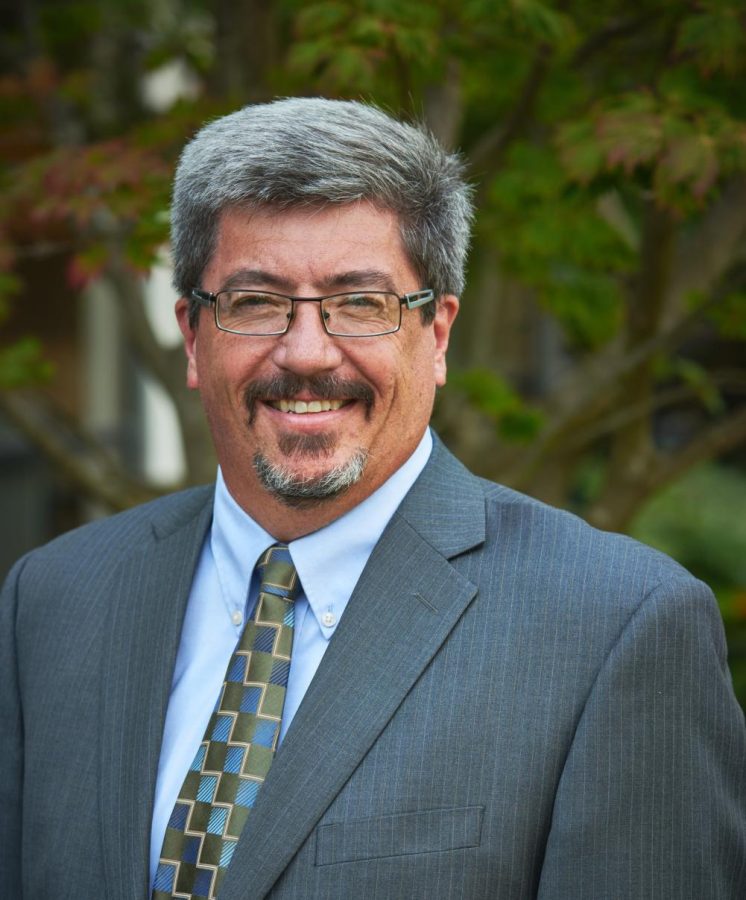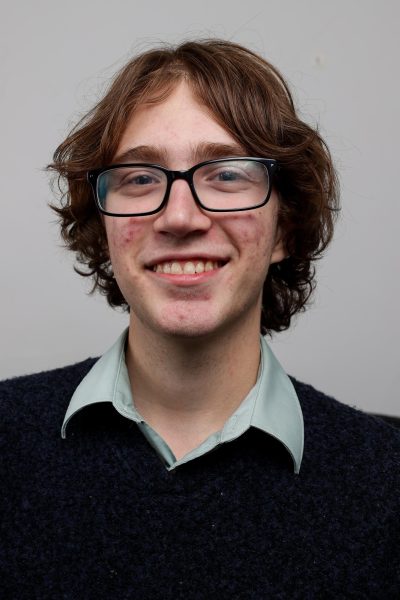During President Deana Porterfield’s speech to faculty on Tuesday, Nov. 26, an email announcing the 19 majors* no longer accepting students was sent out to those in the impacted programs. The email offered little explanation as to why the cuts were enacted.
In an effort to share more information with students, Porterfield held two meetings about Seattle Pacific University’s cuts and financial crisis, including speaking at a Student Senate meeting. Vice President of Student Life Jeff Jordan also appeared at a Senate meeting, and provided a deeper insight on Seattle Pacific University’s finances. During the event, the administrators shed light on how students affected by cuts will be able to complete their degrees, and explained how an audit revealed an even larger deficit than previously thought. During the meetings, the administrators laid out an optimistic yet still developing plan for the future.
Jordan’s Senate meeting appearance on Monday, Nov. 25, delved deeper into the financial state of SPU, and how the university discovered it was missing more money than previously thought.
“We have missed our revenue projections, that is a big, big deal,” Jordan said. “We are a tuition driven institution. When you miss your tuition [goals] and you’re not hitting that mark, you’re really in trouble as an institution.”
Jordan partially attributed this loss in revenue to the enrollment cliff, COVID-19, and the public outcry and resulting lawsuits over SPU’s LGBTQ+ hiring practices, but also shed light on how institutional mismanagement of funds resulted in missing funds.
“Things were not on the books that should have been on the books with expenses,” Jordan said. “Those things all added up over that time and really became a reckoning. Even in May, what we thought our deficit was grew until this November [when it grew] even further. We thought we hit bottom, we thought we hit the lowest mark back in May, and we found other things. This is not good news.”
While Jordan did not divulge exactly how much money was misplaced, he did offer an explanation as to how it happened.
“I don’t think there’s anything nefarious at all,” Jordan said. “This is not blaming anyone, but previous presidents and administrators would say ‘We’re going to put [money] in this bucket for this time period and we’ll make sure that we pay attention to it’ and then when that person who put it in the bucket is no longer here, people forgot that bucket existed. We have found the buckets, we don’t think there’s any more buckets out there.”
Some students who were in attendance of the public meetings felt there was much to be desired. Sophomore business major and history minor Byron Ahina was considering double majoring in business and history, but decided against it once he learned of the fate of the history department. Ahina was very vocal at both meetings that Porterfield attended.
“There’s no dignity or culture in the school anymore,” Ahina said. “They kind of just feel very corporate, lawyer type. They treat us like customers. I may be wrong in thinking this, but I think most of these decisions are made by the board. I’ve never met anyone on the board. In fact, I don’t even think I’ve even seen one.”
SPU administrators maintained that every student will be able to complete their majors by leveraging teach-out programs, and they reiterated that the deans of the affected colleges will reach out to help craft a personalized completion plan. During the “Pizza with the President” meeting on Thursday, Dec. 5, University Registrar Kenda Gatlin suggested that students affected by the cuts may take their major specific courses earlier in their time at SPU to ensure they can still get the required credits for their degree.
“One thing we are doing is we are going to encourage everyone to front load your courses with your major,” Gatlin said. “Who wouldn’t want to do their major courses over a GE course, or something like that? The GE courses will exist, U Foundation will be around, but we want to make sure that you get your major and you’re going to just really dive into that.”
Gatlin did not have a definite answer when asked how front loading classes may impact honors students who are required to complete a certain amount of credits each year outside of their degree. She also claimed that those who front load their classes will be given priority registration, but did not share any specifics as to how.
During the Friday, Nov. 6, staff meeting, Porterfield announced that SPU will downsize from six colleges to three colleges. In the Thursday, Dec. 5, meeting, she announced the interim names for the new colleges would be “Faith and Wellness,” “Faith and Inquiry” and “Faith and Society.”
With theology no longer being offered to new students, concern has arisen as to how a university can be Christian without a theology program. Adding “Faith and” to the beginning of the college names is a way of showcasing a dedication to Christianity, even without a specific theology program.
“We’re making a statement,” Porterfield said. “We’re saying it’s important and who we are.”
On multiple occasions Porterfield and other administrators shared their vision of instilling a Christian liberal arts education into every major. They believe that you do not need specified majors to deliver the same type of education.
“Some people say ‘Well, you have to keep [Christian Theology] because you’re a Christian University,’” Porterfield said. “Why can’t we reinvent how we do things? I truly believe if any institution can figure out a new model of energy around the liberal arts, I think we can do it. It’s going to be hard because we’re mourning the loss of what we’re losing.”
Porterfield wants to make SPU offer skills that employers might find desirable, and believes that can be done even in light of the programs receiving cuts.
“Employers want people who can live in attention and clarify and bring their communities together,” Porterfield said. “What if we are able to position it in a way that actually sets you up on your resume to show something different? I believe SPU can. I get it, we’ve got to work through this hard time we’re in. But the possibility of actually reinventing higher education at a place like SPU and doing it in a way that can lead us forward, I actually think we can do it. I think we have the faculty to do it.”
Specific plans for reinvention have yet to be detailed, but Porterfield said that non-traditional programs that emphasize concentrations over majors may be a way forward for the university. Administrators do not currently have a concrete plan for what future offerings will be, and are actively developing the second half of SPU’s revitalization effort.
Senior Christian Theology, Sociology and Honors Liberal Arts major Abigail Livengood had two of her majors cut. While the cuts will not impact her as a senior, her investment in the SPU experience has left her concerned for future students.
“I understand and admire the efforts they make,” Livengood said. “I understand that SPU is a school where the liberal arts does touch every class. But liberal arts is not just about getting to be offered a couple electives or minors every course. Liberal arts is about being able to have some depth, not just broad scope.”
The plan that Porterfield detailed, which would spread out Christian and liberal arts ideals across all classes instead of offering more specific majors, is a strategy that is in stark contrast to what Livengood experienced in her time at SPU.
“I am concerned about the branding of a Christian liberal arts school that doesn’t offer a History major, a Philosophy major, or a Theology major,” Livengood said. “As much as I understand they might want different things now, the SPU experience that I got to have and that I’m really invested in other people getting — I just don’t think they’ll be able to do that anymore. Graduating this year is like taking the last boat off the Titanic.”
*The majors that will no longer accept new students are: Art History, Applied Math, Cellular Biology, Molecular Biology, Bachelors in Chemistry, Christian Theology, Computer Engineering, International Sustainable Development, History, Information Systems, Journalism, Life Sciences, Nutrition and Dietetics, Food and Nutritional Sciences, Philosophy, Physics, Social Justice, Cultural Studies, and Special Education.


















































































